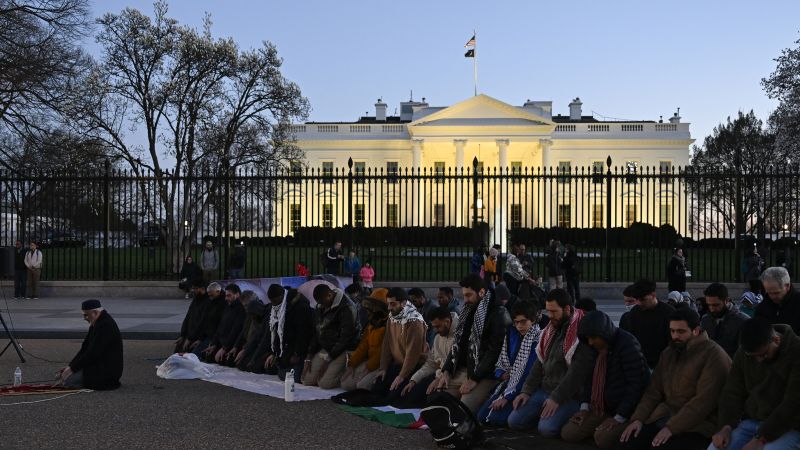President Joe Biden is set to host a scaled-down iftar dinner at the White House to observe Ramadan, reflecting tension between the administration and Arab and Muslim American communities over the Israel-Hamas conflict. Some invitees have declined to attend, citing frustration with the administration’s support of Israel during the crisis in Gaza. Vice President Kamala Harris, national security adviser Jake Sullivan, senior White House aides, and fewer than a dozen guests are expected to attend the small gathering.
Last year, the White House did not hold an iftar dinner but hosted a reception celebrating Eid al-Fitr. This year’s Ramadan coincides with ongoing violence in the Israel-Hamas conflict, with over 30,000 reported deaths since Hamas attacked Israel in October. Biden has called for a temporary ceasefire but has not halted arms provisions to Israel. Officials hope the dinner will allow guests to share their concerns with the president directly.
White House officials have met with Arab American and Muslim leaders in various cities, including a meeting with leaders in Chicago last month. However, some participants declined to attend due to the crisis in Gaza. The administration’s handling of the conflict is causing political challenges for Biden, especially in battleground states like Michigan with a significant Muslim American population. The state’s Democratic primary saw more than 100,000 voters choosing “uncommitted” to send a message to the president.
The scaled-back nature of this year’s Ramadan commemorations is evident, with some activists receiving invitations last year but not this year. Layla Elabed, campaign manager for Listen to Michigan, did not receive an invitation this year and stated she would have declined due to the administration’s response to the violence in Gaza. The White House confirmed that Ramadan would be commemorated this year but did not provide further details about the event. Press secretary Karine Jean-Pierre declined to comment on the iftar dinner during a recent news briefing.
The administration’s approach to the Israel-Hamas conflict has caused division and concern among Arab and Muslim American communities, leading to some individuals boycotting events like the iftar dinner. Biden’s handling of the conflict has stirred political challenges, particularly in states with large Muslim American populations, where voters have expressed dissatisfaction through actions like choosing “uncommitted” in primaries. Despite the administration’s efforts to engage with community leaders, some leaders have chosen not to participate in events due to ongoing humanitarian issues in Gaza.
As tensions continue to rise in the Israel-Hamas conflict, the White House’s decision to host a scaled-down iftar dinner during Ramadan reflects the complexities of navigating relations with Arab and Muslim American communities. The administration’s stance on the conflict has sparked frustration and dissent among some community members, creating political challenges for Biden. The dinner provides an opportunity for direct dialogue between the president and selected guests, offering a platform for sharing concerns and discussing potential solutions to the ongoing crisis.















